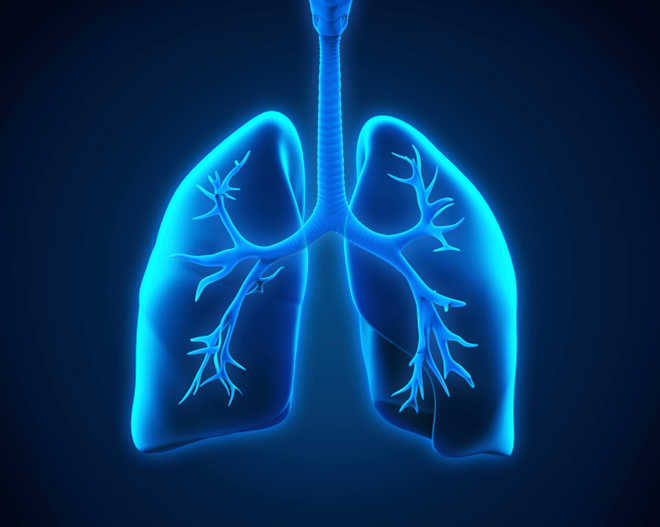
Since the lung is a barrier organ in direct contact with the outside environment, targeted delivery to correct defective genes is an attractive therapy.
WASHINGTON: Scientists have used a gene editing tool to thwart a lethal lung disease in animals in which a harmful mutation causes death within hours after birth.
The proof-of-concept study, published in the journal Science Translational Medicine, showed that in utero editing could be a promising new approach for treating lung diseases before birth.
“The developing foetus has many innate properties that make it an attractive recipient for therapeutic gene editing,” said William H Peranteau, an investigator at Children’s Hospital of Philadelphia (CHOP) in the US.
“Furthermore, the ability to cure or mitigate a disease via gene editing in mid- to late gestation before birth and the onset of irreversible pathology is very exciting. This is particularly true for diseases that affect the lungs, whose function becomes dramatically more important at the time of birth,” Peranteau said in a statement.
The lung conditions the team is hoping to solve—congenital diseases such as surfactant protein deficiency, cystic fibrosis, and alpha-1 antitrypsin—are characterised by respiratory failure at birth or chronic lung disease with few options for therapies.
About 22 per cent of all pediatric hospital admissions are because of respiratory disorders, and congenital causes of respiratory diseases are often lethal, despite advances in care and a deeper understanding of their molecular causes.
Since the lung is a barrier organ in direct contact with the outside environment, targeted delivery to correct defective genes is an attractive therapy.
“We wanted to know if this could work at all. The trick was how to direct the gene-editing machinery to target cells that line the airways of the lungs,” said Edward E Morrisey, a professor at the University of Pennsylvania in the US.
The researchers showed that precisely timed in utero delivery of CRISPR gene-editing reagents to the amniotic fluid during fetal development resulted in targeted changes in the lungs of mice.
They introduced the gene editors into developing mice four days before birth, which is analogous to the third trimester in humans.
The cells that showed the highest percentage of editing were alveolar epithelial cells and airway secretory cells lining lung airways. In 2018, a team led by Morrisey identified the alveolar epithelial progenitor (AEP) lineage, which is embedded in a larger population of cells called alveolar type 2 cells.
These cells generate pulmonary surfactant, which reduces surface tension in the lungs and keeps them from collapsing with every breath.
AEPs are a stable cell type in the lung and turn over very slowly, but replicate rapidly after injury to regenerate the lining of the alveoli and restore gas exchange.
In a second experiment, the researchers used prenatal gene-editing to reduce the severity of an interstitial lung disease, surfactant protein C (SFTPC) deficiency, in a mouse model that has a common disease-causing mutation found in the human SFTPC gene.
One hundred per cent of untreated mice with this mutation die from respiratory failure within hours of birth. In contrast, prenatal gene editing to inactivate the mutant Sftpc gene resulted in improved lung morphology and survival of over 22 per cent of the animals.
Future studies will be directed towards increasing the efficiency of the gene editing in the epithelial lining of lungs as well as evaluating different mechanisms to deliver gene editing technology to lungs.
“The current research is a proof-of-concept study highlighting the exciting future prospects for prenatal treatments including gene editing and replacement gene therapy for the treatment of congenital diseases,” Peranteau said. PTI



























